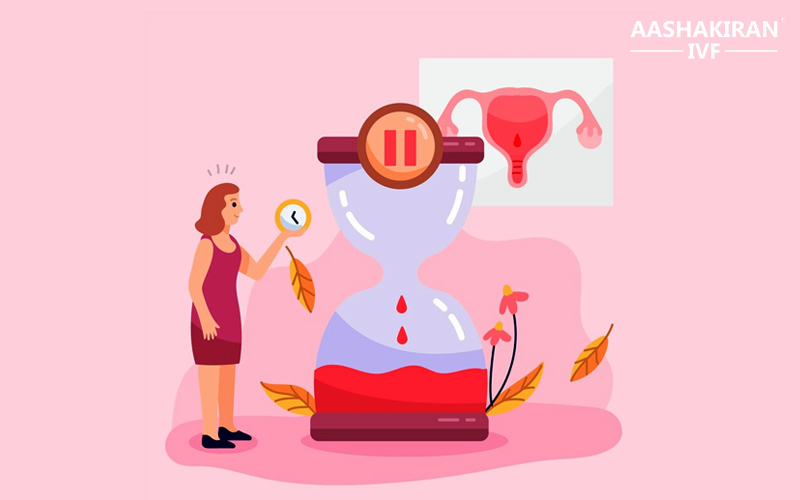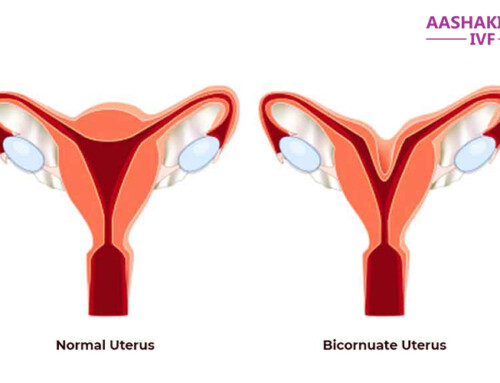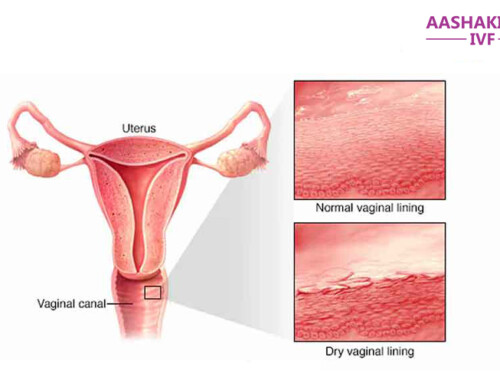Postmenopausal bleeding refers to vaginal bleeding that occurs after a woman has gone through menopause, defined as the absence of menstrual periods for 12 consecutive months. While postmenopausal bleeding is often benign, it can also be a sign of underlying health concerns. Understanding the causes, evaluation, and management of postmenopausal bleeding is essential for women’s health and well-being. Let’s explore this topic with the expertise available at Aashakiran IVF, led by Dr. Asmita Mahla, with centers located in Kharar, Amritsar, Ludhiana, and Bathinda.
Understanding Postmenopausal Bleeding: Postmenopausal bleeding is not a normal occurrence and warrants prompt medical attention. While it may be due to benign causes such as hormonal fluctuations or vaginal atrophy, it can also indicate more serious conditions such as endometrial hyperplasia, endometrial cancer, or uterine fibroids.
Common Causes of Postmenopausal Bleeding:
- Hormonal Changes: Fluctuations in hormone levels, particularly estrogen, can lead to changes in the uterine lining and result in postmenopausal bleeding.
- Vaginal Atrophy: Thinning and drying of the vaginal tissues, known as vaginal atrophy, can cause irritation and bleeding, especially during sexual activity.
- Endometrial Hyperplasia: Thickening of the uterine lining, known as endometrial hyperplasia, can cause abnormal bleeding and may increase the risk of endometrial cancer.
- Endometrial Cancer: Postmenopausal bleeding can be an early warning sign of endometrial cancer, particularly if accompanied by other symptoms such as pelvic pain or weight loss.
- Uterine Fibroids: Benign growths in the uterus, called uterine fibroids, can cause irregular bleeding, including postmenopausal bleeding.
Evaluation and Management: Any episode of postmenopausal bleeding should be evaluated by a healthcare provider, such as Dr. Asmita Mahla at Aashakiran IVF. Diagnostic tests may include pelvic exams, ultrasound imaging, endometrial biopsy, or hysteroscopy to determine the cause of the bleeding and rule out serious conditions. Treatment options will depend on the underlying cause and may include hormonal therapy, medication, or surgical intervention.
Expert Care at Aashakiran IVF: At Aashakiran IVF, women experiencing postmenopausal bleeding receive compassionate and expert care from Dr. Asmita Mahla and her team of gynaecologists. With a commitment to women’s health and well-being, Aashakiran IVF offers comprehensive diagnostic evaluations and personalized treatment plans to address postmenopausal bleeding and promote optimal health outcomes. Stay connected with Aashakiran IVF for more insights on women’s health, reproductive wellness, and expert guidance from Dr. Asmita Mahla: Facebook YouTube Instagram
Conclusion: Postmenopausal bleeding should never be ignored, as it can indicate underlying health concerns that require medical attention. By seeking timely evaluation and expert care from providers like Dr. Asmita Mahla at Aashakiran IVF, women can address postmenopausal bleeding and take proactive steps to safeguard their health and well-being.




